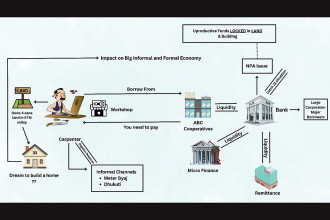
Coaching is one of the most significant tools for managers. Coaching skills help a manager to improve their leadership skills and overall performance in an organisation. In order to sustain and maintain significant growth in this competitive business environment, organisations have to have more skillful and qualified managers who are equipped and have a strong bond with their subordinates. Coaching skills help managers make their employee understand what they should be doing and how. It helps employees acquire new skills and enhance overall performance. Coaching supports employees to meet changing business demands. Besides, they are more committed to their work and accomplishment of the organisational goal. Also, it increases employee retention. In a global context, many organisations find coaching useful for the career development of their employees so they are using coaching as a tool to enhance the performance and ease the process of change management. There are some easy steps of coaching that one can incorporate in the way one works.
Active Listening
Listening skill is one of the important skills in the coaching process. In a traditional leadership pattern, leaders are in a hurry to offer instructions to their employee whereas, in the coaching process, leaders have to listen attentively and patiently after asking an open-ended question. The leader or manager must be an empathetic listener. Encouraging others to talk by asking thoughtful and powerful questions adds values to listening skills. The more we know about our employees and their challenges, the higher chances of providing them with their exact solution. By practising active listening skills, we can create a strong bond with our employees.
Asking Questions
The most important thing a coach can do is ask profound questions which help to explore and find a solution through the coaching process. Let’s say an employee wants to achieve some objectives. As a coach, you can ask many questions which will help you to understand better and bring awareness to the employee. However, if you ask: “what exactly do you want to achieve and by when”, the emphasis is on “exactly” and “by when”. You have to give time to explore the answer and when you do this you are giving room for reflection. Once an employee is in a state of complete awareness then you can go for further questions which will lead towards a solution. Questions should be open and probing like: “What happens if you achieve your objectives”? It will bring more awareness in front of your subordinate and encourage them to take steps toward achieving those objectives. Once you have asked questions, get ready to listen empathetically.
Accountability
Making your employee accountable is important if you want to ensure employees take responsibility for their performance. You can make them more accountable when they are clear on their roles, expectation of organisation from them, and the consequences of not achieving the desired outcome. When they are accountable, you as a manager do not need to follow through frequently and you will find your employee more pro-active in the decision-making process. You can ask a questions like: “What happens if you fail to achieve your objectives”? “What can stop you from achieving the desired outcome”? “What are the biggest obstacles?”
Designing Action Steps
Once you and your employee have had an opportunity to discuss the situation in-depth, your employee is ready to design an action step that s/he will take to achieve the desired outcome in a given deadlines. In order to achieve the desired outcome, the action steps must be easy to understand, straightforward and a timeframe must be set. What are the first things they have to do and what is the expected time should be made clear. You can ask, “What action do you take to achieve those outcomes and by when”? “How will you know you have been successful”? “What kind of help do you need?”
Coaching can be the best tool for motivation and employee engagement. It is effective in moving low and average performers towards peak performance. It even helps tap hidden potential in employees. When you work as a coach, you are not only helping your employee to become a top performer, you are impacting the overall performance of the organisation. As a coach, you are not only adding confidence to your people but you are creating more time for yourself to think about your organisation’s future growth.
Sudeep Basnet is an effective motivator, trainer and certified life coach. For over 10 years, Basnet has been working with hundreds of organisations to improve teamwork, increase motivation, and leadership development. He is also the chairperson and lead trainer of Success Inc.





-1758271497.jpg)